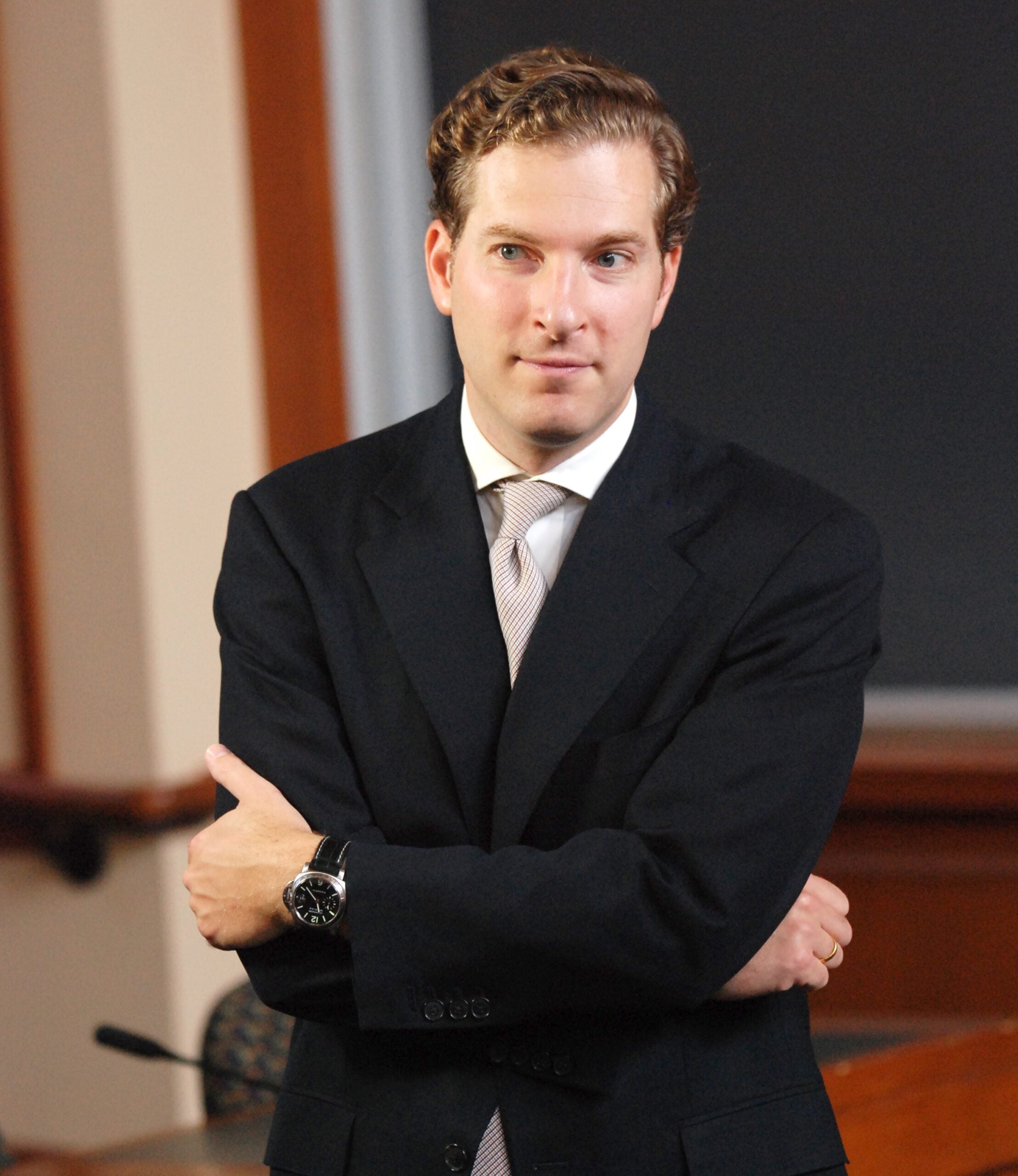Professor Noah Feldman, who joined the faculty in 2007, is an expert in constitutional law — with a special focus on the interplay between law and religion — and international and comparative law. He is fluent in four languages, including Arabic, and he served as an adviser to the Coalition Provisional Authority in Iraq during the drafting of Iraq’s constitution. His wide-ranging written work, which includes books, scholarly articles and journalism (he is a contributing editor of The New York Times Magazine), prompted New York Magazine to crown him “the next big public intellectual.”
What’s the link between your interests in international affairs and religion?
The work I have done so far has all been pretty interconnected under the general heading of constitutional design with special attention to the problem of religion and government. What I try to do in my book on church and state issues in the United States [“Divided by God”] is draw attention to the way church-state affairs are a product of constitutional design and very much change over time. They are not fixed. So even though we imagine we’ve solved the church-state problem, we are still having an ongoing church-state controversy. We still aren’t sure about the right relationship between religion and government in the United States. We still have two strongly opposing schools. In my book, I call them “values evangelicals” on the one hand and “legal secularists” on the other side.
In your forthcoming book, “The Fall and Rise of the Islamic State,” you say the Islamist political parties’ call for the Sharia is a counterweight to authoritarian regimes. What do you mean?
Today, the biggest problem in much of the Muslim world is executive dominance, rulers who are not limited or constrained by law or anything much else in society. The Islamist political parties that are rising fast throughout the region are calling for the establishment of the Sharia. My book tries to explain the relationship between these two things. I argue that the classical Islamic state was a rule of law state in which a group of scholars legitimated government by placing the law above the ruler. I then argue this rule of law state collapsed in the 19th century. These new political parties calling for Sharia are aspiring for the establishment of the rule of law. I conclude with a question: Will it work? My argument is the odds are slim unless new institutions arise that can replace the scholars who were the traditional guarantors of the legal system.
Should we be afraid of Islamist parties?
We need to understand that a big part of the urge for Sharia is the desire to constrain unfettered executives. That is an impulse we as Americans should share. We also know an unfettered power does a bad job of governing. So we need to keep that in mind, and when we encourage democratization in the Muslim world, we should be focused on encouraging meaningful rule of law, quite unlike what our policy has been recently in Pakistan. In the latest crisis, we have not done enough to make clear to Musharraf and Pakistan more generally that we can’t tolerate Musharraf suspending the constitution and firing justices of the Supreme Court even if it’s fair to be concerned about the rise of Islamism in Pakistan. It’s not clear how Musharraf shutting down secular civil society is helping him protect himself from the Islamic rise. To the contrary, when the public sees secular civil society being shut down, it only encourages the public to turn to Islamism as the only viable alternative to the government.
What went wrong during your tenure helping the Coalition Provisional Authority write a new Iraqi constitution?
The original sin of the invasion really was destroying the Iraqi state and allowing it to collapse and then aspiring to create brand-new institutions from scratch. It took me a while there to realize just how totally the state’s structures were gone. It took everybody a while, including the Iraqis, to figure this out. Then when political parties were formed and when elections were held, which happened pretty efficiently, and a constitution was created, which happened relatively smoothly, all these things had a great deal of trouble functioning because they didn’t have state institutions through which they could operate. The lessons are that elections are not the magic bullet. You need effective institutions to govern, and our policy should be to support such institutions where they come into being on their own.
Who is your target audience when you write for The New York Times Magazine?
It’s very important to me that I reach the academic audience of my colleagues and the broader audience of people who care about constitutional affairs. In a democracy, constitutional affairs have to be the preserve of the whole public and not just the experts. I see it as part of the responsibility of people in universities to reach out to that public.
You recently wrote a very personal article for The New York Times [“Orthodox Paradox,” July 22, 2007] about being shunned by the Orthodox Jewish school you attended for marrying a non-Jew. What reaction did that article bring?
I was overwhelmed by how many positive responses I got from surprising quarters, from South Asians to Mormons in Utah, who said they knew what I was talking about. I was also really pleased to get so much positive feedback from people within the Orthodox community who were glad I had helped start an important conversation there that made the whole experience worthwhile.
